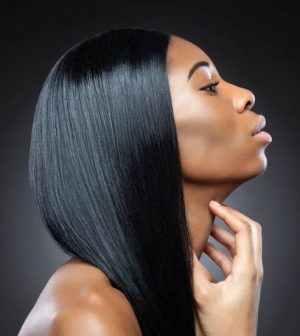- Finding Unshakable Power in a World That Wants to Pull Us ApartPosted 6 months ago
- What could a Donald Trump presidency mean for abortion rights?Posted 6 months ago
- Financial Empowerment: The Game-Changer for Women in Relationships and BeyondPosted 7 months ago
- Mental Health and Wellbeing Tips During and After PregnancyPosted 7 months ago
- Fall Renewal: Step outside your Comfort Zone & Experience Vibrant ChangePosted 7 months ago
- Women Entrepreneurs Need Support SystemsPosted 7 months ago
Hair Straightening Products Have a Dangerous Wrinkle

By Lisa Roth Collins, RHN | Naturallysavvy.com
Do you long for straight hair? Are you a frequent user of hair straightening products? A recent 11-year study found that women who use hair straightening and relaxer products at least four times a year are twice as likely to develop uterine cancer than those who don’t use these products.
About uterine cancer
In 2022, approximately 65,950 women in the United States and 8,100 in Canada will be diagnosed with uterine cancer. Also referred to as endometrium cancer because most cases begin in the endometrium (layer of cells that make up the uterine lining); the risk factors include obesity, age 50 and older, the start of menstruation before age 12, never being pregnant, use of estrogen replacement therapy, late menopause, polycystic ovarian syndrome, and a diet high in animal fat.
Uterine cancer is more common among black women than white women. Deaths from uterine cancer increased by about 1 percent each year between 2015 and 2019, but since then, death rates have stabilized.
Hair straightening product study findings
In this new study, experts evaluated more than 33,000 women ages 35 to 74 over about an 11-year period. A total of 387 cases of uterine cancer were diagnosed during that time. The researchers did not find a relationship between developing uterine cancer and using other hair products, such as bleach, highlights, perms, or hair dyes.
According to the study’s lead author, Alexandra White, Ph.D., head of the NIEHS Environment and Cancer Epidemiology group, they had “estimated that 1.64% of women who never used hair straighteners would go on to develop uterine cancer by the age of 70; but for frequent users, that risk goes up to 4.05%.”
Although the authors did not find that the incidence of uterine cancer was different by race, it is possible the harmful effects from straightener use may be greater for black women, as about 60 percent of the participants who used the products were black.
Che-Jung Chang, Ph.D., another author of the study, pointed out that because black women tend to begin using straightening products at an earlier age than other races and they use them more often, “these findings may be even more relevant for them.”
Straighteners may be so hazardous because they are easily absorbed through the scalp, and they may be enhanced by lesions and burns the straighteners can cause, as these products contain bisphenol A, formaldehyde, parabens, and metals.
Earlier study’s findings
The findings in this new study align with those reported by some of the same researchers in earlier work. In that study, they reported that using permanent hair dye and chemical hair straighteners could increase women’s risk of breast cancer. Black women were at significantly higher risk of breast cancer associated with permanent hair dye: during a mean follow-up of 8.3 years, the breast cancer risk was 45 percent higher among black women and 7 percent among white women.
Bottom line
Using hair straighteners and relaxers is associated with a greater risk of developing uterine cancer, which is already greater among black women. Although the researchers did not document the brand names or ingredients of the products used, chemicals commonly found in these items (bisphenol A, parabens, metals, formaldehyde) may be responsible. This study and previous findings suggest that the use of such hair products poses a significant risk to women.
Sources
Canadian Cancer Society. Uterine cancer statistics. 2022 May
Chang CJ et al. Use of straighteners and other hair products and incident uterine cancer. Journal of the National Cancer Institute 2022 Oct 17
National Institutes of Health. Hair straightening chemicals associated with higher uterine cancer risk. NIH news release. 2022 Oct 17
Uterine cancer: statistics. Cancer.Net 2022 Feb






